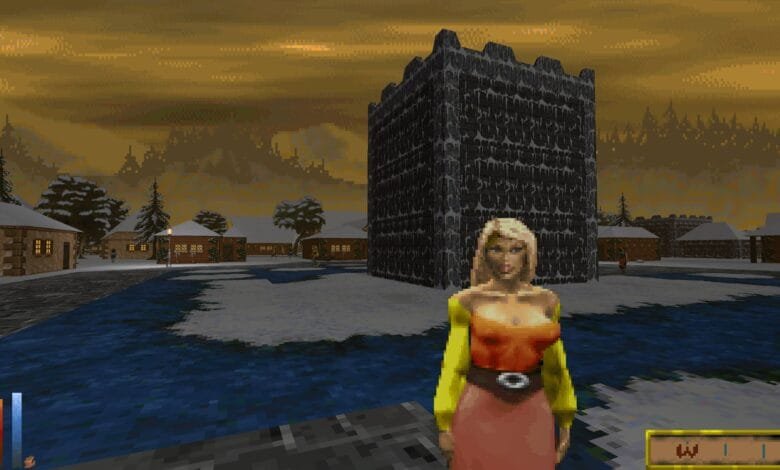The Elder Scrolls’ Strange DLC History Started Before Horse Armor

▼ Summary
– The Elder Scrolls 2: Daggerfall had a CompUSA-exclusive expansion at launch, featuring 16 additional quests later released in a free patch.
– The expansion’s origin is unclear, with speculation that CompUSA pressured Bethesda for exclusivity to stock the game.
– Designer Kurt Kuhlmann, then a junior developer, created the quests quickly, focusing on branching storylines rarely seen in the base game.
– Players criticized the exclusivity deal, with some uploading the quests early, while Bethesda eventually made them widely available.
– The controversy mirrors modern DLC debates, showing longstanding tensions between players, developers, and retailers.
The Elder Scrolls series has a fascinating and sometimes controversial history with downloadable content, stretching back further than many fans realize. While expansions like Shivering Isles are celebrated and horse armor remains infamous, the franchise’s first major DLC experiment arrived with The Elder Scrolls II: Daggerfall in 1996, long before digital distribution became standard.
At launch, Daggerfall included an exclusive expansion available only through CompUSA, a now-defunct electronics retailer. Dubbed the CompUSA Special Edition, this add-on introduced 16 new quests tied to the game’s guilds and temples. Though Bethesda later released these quests as a free patch, they were never officially integrated into the base game.
The origins of this retailer-exclusive content remain murky. Some sources suggest CompUSA pressured Bethesda into creating it as a condition for stocking the game, though concrete evidence is scarce. Kurt Kuhlmann, the junior designer tasked with crafting the expansion, recalls it as part of a broader marketing strategy. “Deals like this secured prime shelf placement,” he explains, referencing endcap promotions that put games in high-visibility store locations.
Despite its rushed development, Kuhlmann estimates the quests were completed in weeks, not months, the CompUSA content was surprisingly robust. Unlike most of Daggerfall’s procedurally generated missions, these quests featured branching narratives and interconnected storylines. One standout arc involved a power struggle in the city of Sentinel, while another let players ally with or betray a rogue sorcerer. “I loved weaving multi-part stories,” Kuhlmann notes, highlighting how the expansion pushed Daggerfall’s rudimentary quest tools to their limits.
Reception at the time was mixed, with frustration over exclusivity overshadowing the content itself. Usenet archives reveal heated debates, with players accusing Bethesda of unfair practices. Some vented about pre-order bonuses or limited editions lacking the CompUSA quests, while others defended the move as smart marketing. The backlash mirrored modern DLC controversies, proving that player grievances over content gating are nothing new.
Interestingly, Bethesda always intended to release the quests widely. Leaked patches and forum posts suggest the studio unofficially allowed players to share the CompUSA files online before the official update arrived. This early example of community-driven content distribution hints at the evolving relationship between developers and fans.
Looking back, the CompUSA expansion was a precursor to modern DLC trends. Kuhlmann reflects that it taught him how post-launch content could refine a game’s vision, filling gaps left by tight development cycles. More broadly, the episode underscores how little has changed in gaming culture, whether it’s 1996 or 2024, players still debate fairness, value, and corporate decisions with the same passion.
While the CompUSA edition is now a niche footnote, its legacy lives on. It set the stage for Bethesda’s later experiments with expansions, proving that even in the ‘90s, the line between innovative content and divisive business models was razor-thin.
(Source: PC Gamer)